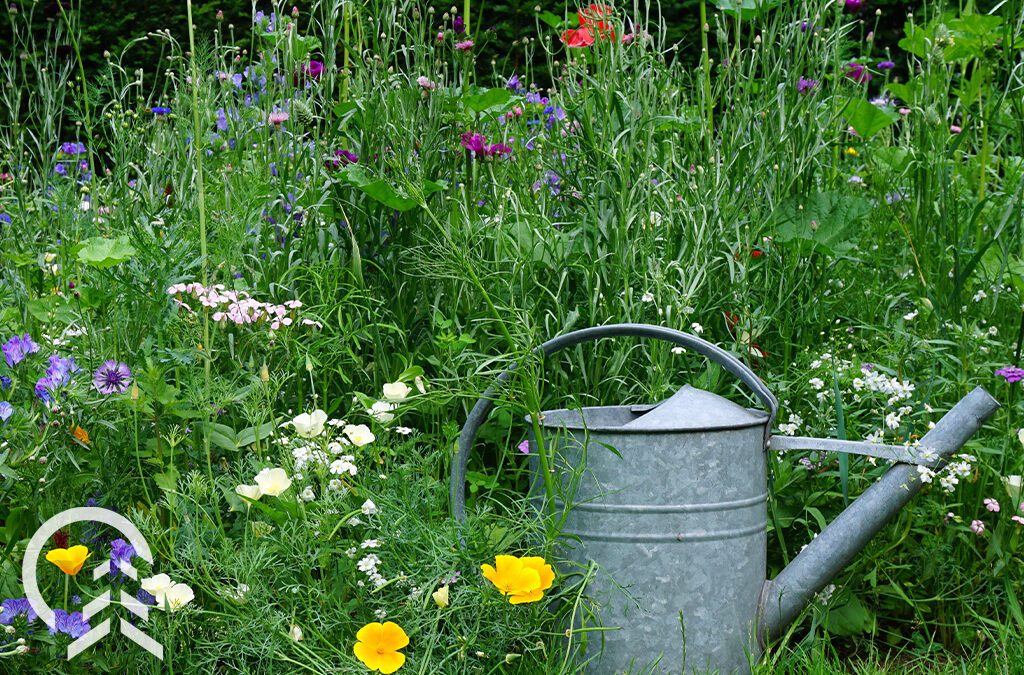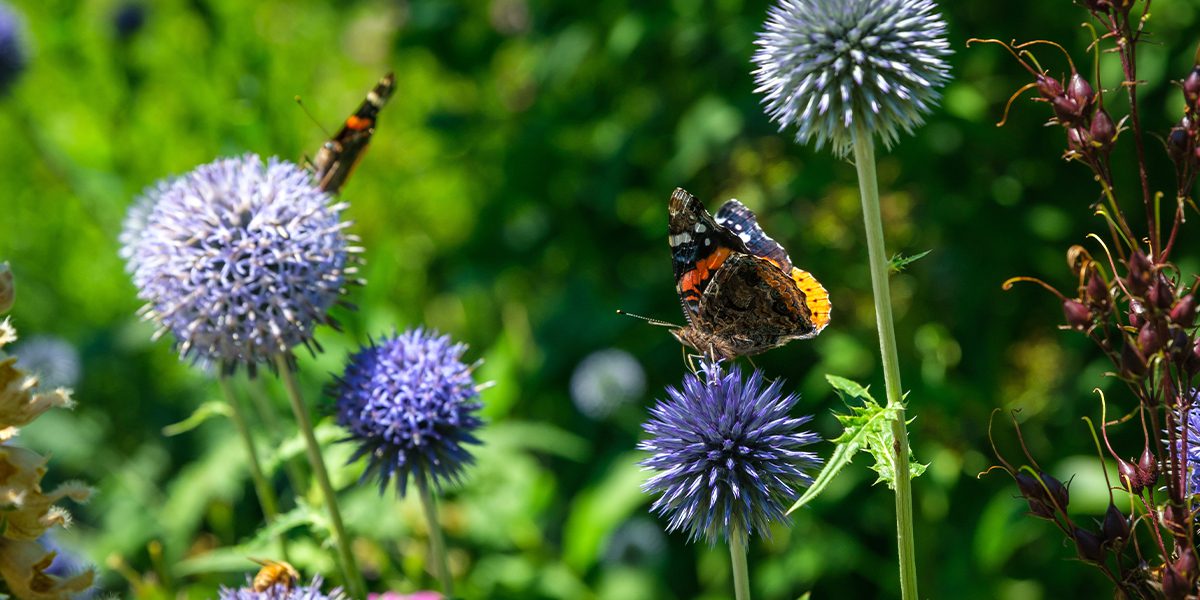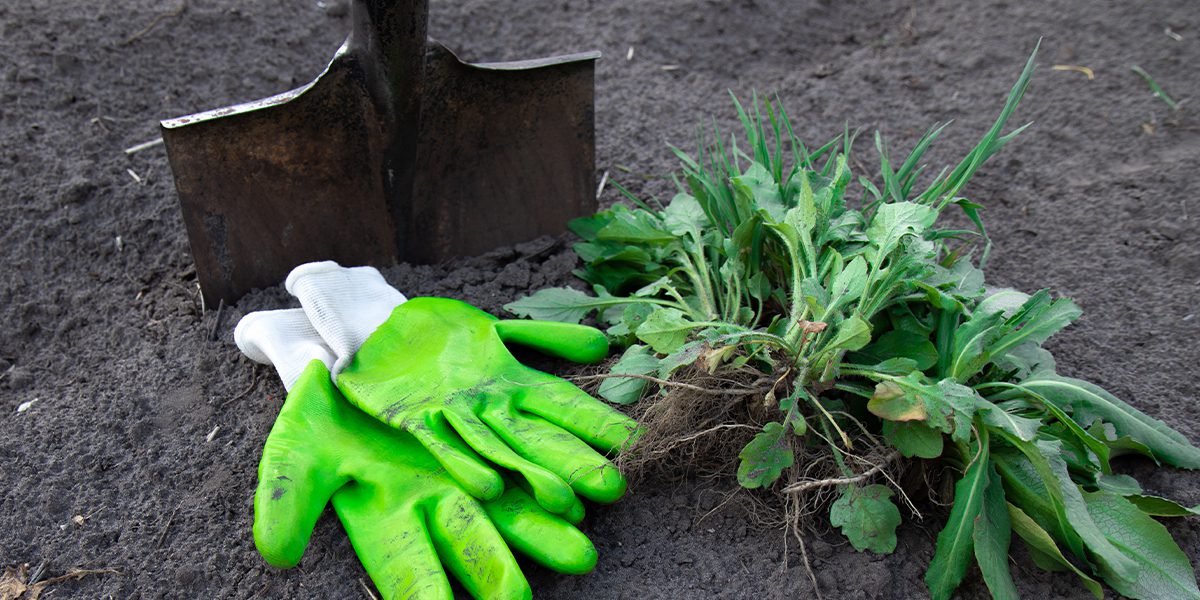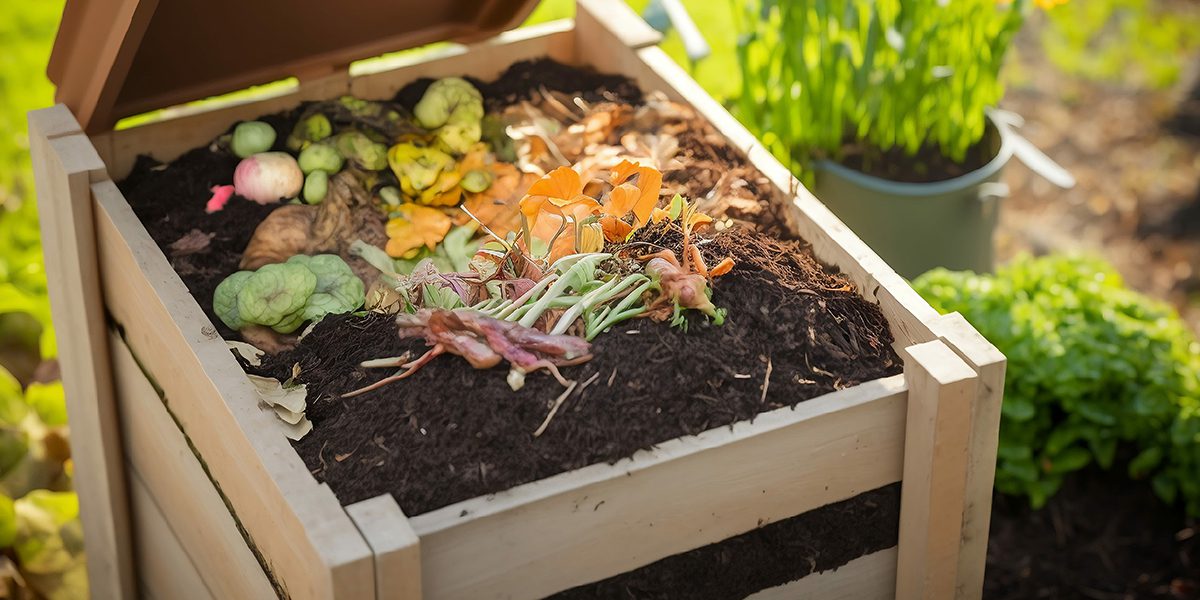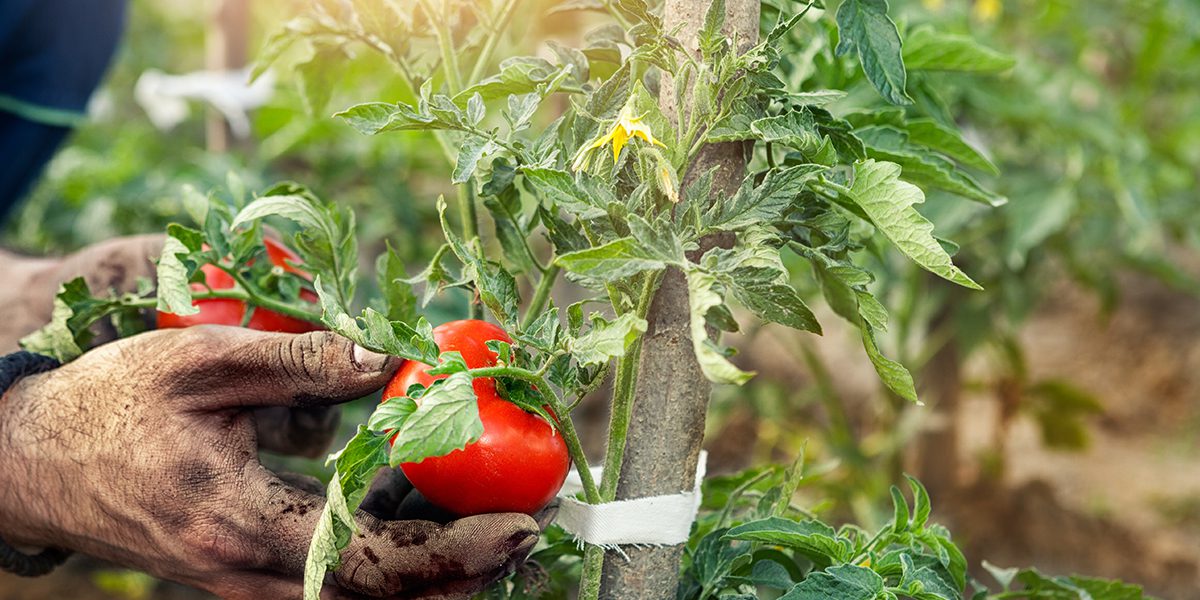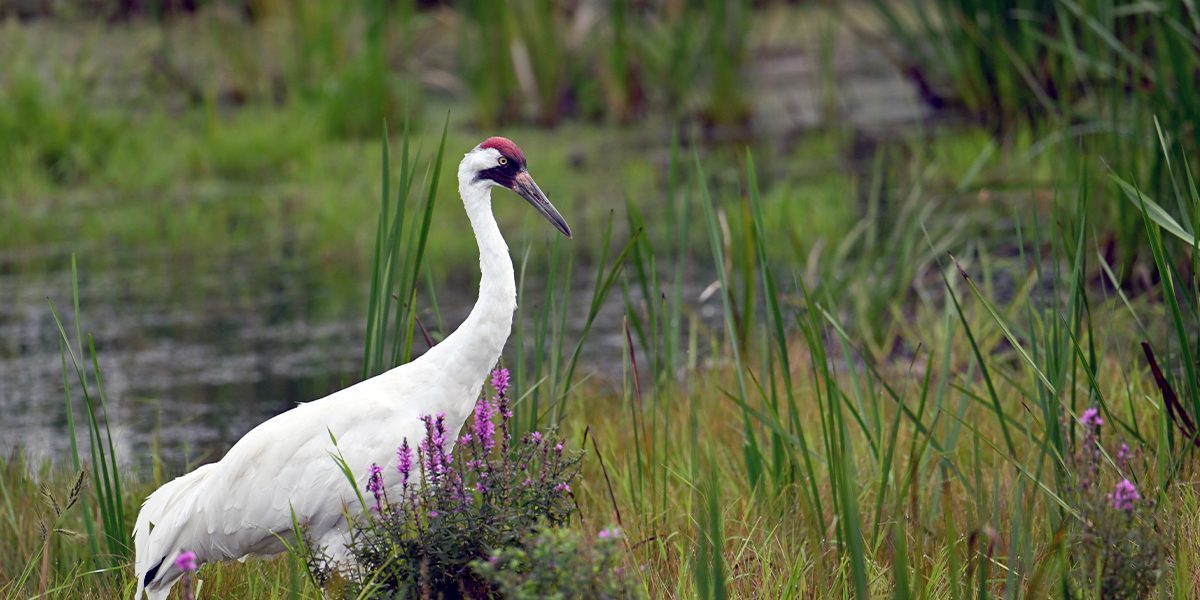Eco-friendly gardening is more than just a buzzword; it’s a practical landscaping approach that brings earth-friendly living and superior all-around gardening techniques to your outdoor space. With sustainable methods, you can reduce your workload, save money, minimize your footprint, and regenerate the health and abundance of your whole garden space! Here are 14 easy ways you can weave sustainable gardening practices into your normal routine to achieve a more eco-friendly landscape:
What is a Sustainable Garden?
Simply put, a sustainable garden helps the earth instead of damaging it by naturally regenerating the soil, encouraging biodiversity, and improving the overall health of our local ecosystems. Sustainable gardening practices involve working in harmony with soil biology, native plants and insects, and our home ecoregions. When we make this switch, we have many more methods to create a richer, more beautiful, and healthier space.
How to Create a Sustainable Garden
Here are a few of our favorite sustainable gardening practices you can incorporate into your regular landscaping routine this summer:
Plant More Native Illinois Plants
Think of your garden as a little piece of the ecosystem around you. When you plant more native species, you provide more resources to native birds, insects, butterflies, and other wildlife that rely on native plants for food, nesting, and reproductive shelter. Plus, you give space to the native plants themselves, which are often more resilient, require less maintenance, and have a unique, local beauty.
Bring On the Diversity
What’s the difference between a turf grass lawn and an ancient tall grass prairie? Both are green and made up of grass, but the prairie is infinitely more biodiverse, containing hundreds of species of grasses and wildflowers that host thousands of different insects, songbirds, mammals, and birds of prey. While it would be impossible to plant an entire prairie in our Chicagoland backyards, we can bring a bit of that magic to our garden and lawn spaces by growing a more diverse selection of plants and hosting a wider variety of life!
Transition to Organic
When we spray our plants with pesticides, we unknowingly damage our soil, rivers and lakes, health, and helpful local insects and pollinators. A sustainable alternative is to switch to organic pest control. Try using mesh around vulnerable vegetable crops, take advantage of companion planting, use predatory insects like ladybugs, and boost biodiversity in general, which builds a more resilient and sustainable space.
Manage Weeds Organically
Organic weed management is a boon to the insects, soil, and the miniature ecosystem of our garden space. Digging out weeds by hand, mulching, and using handy tools like a garden hoe are great ways to make fast work of weeds.
Another way is to eat them. Many so-called “weeds,” like dandelions and chickweed, are actually super nutritious, edible greens that are best enjoyed when the leaves are young. Just make sure they haven’t been sprayed with anything before adding them to your next salad!
Turn Off Your Lights at Night
Insects are the cornerstone of all life—both in our gardens and our broader ecosystem—but we unknowingly harm them by using outdoor lights at night. Roughly half of all insects are nocturnal, but our lights interfere with their nighttime travel patterns, vision, and mating habits. Ever seen moths buzzing around porch lights? Nearly one-third of insects caught in this situation die. If we simply turned off our lights at night, we could save thousands of insects every year in our yards alone.
If you don’t want to nix your lights altogether, switch to motion sensor lights or use yellow or amber low-light LEDs, which are less disturbing to bugs.
Capture Rainwater
Reduce your water bill and consumption by capturing rainwater to use in your garden. A common method is to store it in rain barrels for later use, while another approach is to divert your downspouts into underground weeping pipes that bring rainwater to your shrubs and trees. In times of heat, these are sustainable ways to keep your garden space thriving without taxing the natural water supply.
Make a Compost Pile
Few things are more sustainable and easy to create than a compost pile. It’s a DIY method to turn kitchen scraps, yard waste, and leaves into valuable, all-natural fertilizer for your garden. The key to composting is to get the right ratio of green matter–like weeds, fruit and veggie scraps, and coffee grounds–and brown matter, like dried leaves, paper and cardboard, and woody branches. Once you achieve the correct balance, the microbes start to thrive, and you have an efficient digestor with minimal scent.
Build Living Soils
Synthetic fertilizers do a great job of boosting plant growth in the short term, but they actually impair soil microbiology and pollute our waterways with an overabundance of nitrogen and phosphorus in the long run. A sustainable alternative is building living soils rich in organic matter and microbes by using compost, aged manure, compost tea, cover cropping, or mulch on your garden rather than chemical fertilizers.
Water Wisely
Besides using rain barrels, efficient use of water reduces your overall consumption. Some of our favorite ways to water sustainably include mulching your plants to retain water, watering in the morning to reduce evaporation loss, growing your grass longer to reduce its watering needs, and using a drip irrigation line in your garden space.
Insect-Friendly Garden Clean-Ups
Ladybugs, solitary bees, moths, beetles, and butterflies use leaf mulch and dead plant matter as shelter over the winter. We can boost the population of these beneficial insects by leaving our leaves over the winter in our garden and then waiting until the bees emerge in the spring before we do a clean-up. It also benefits the insects to keep a small messy area in your yard year-round.
Grow Your Own Food
Berries, perennial food plants, fruit trees, and a good old-fashioned vegetable plot are great ways to reduce your family’s ecological footprint while enjoying the best food possible. During World War Two, victory gardens planted in people’s yards contributed 40% of their total food consumption. If we aim for something similar, we can greatly reduce our carbon footprint associated with the transportation of food and plastic packaging.
Start a Nature Observation Practice
One of the best ways to live in harmony with birds, squirrels, butterflies, and other creatures is to start an observation practice in your yard. Spend a few hours per week observing who visits your space and what they’re doing there. Over the long term, you’ll learn how the birds, squirrels, and insects use the plants you grow. This knowledge will help you adopt more mutually beneficial gardening practices that will assist your local wildlife instead of competing with them or viewing them as pests.
Learn About the Ecoregions Around Chicago
Not long ago, our yards and gardens were tall grass prairies, eastern deciduous forests, or mixed forest-grasslands savannas. Although these precious ecosystems have been greatly altered, they still exist in fragments around us, and getting to know your local ecoregion is a great way to become more invested in its preservation and regeneration. Visit your local nature parks, conservation areas, rivers, and lakes and experience the abundance of unique life and natural beauty that continues to thrive just outside your door!
Get the Kids Involved!
A final great way to make your gardening more sustainable is to get the kids involved. Children are naturally curious about animals, insects, and plants, meaning they absolutely adore biodiverse outdoor spaces. Plus, there’s no better way to build a more sustainable future than to get the next generation in the dirt at a young age!
For any supplies or other advice you may need when developing your sustainable garden space this summer, don’t hesitate to visit our garden centers in Bloomingdale and Carpentersville!
Platt Hill Nursery is Chicago’s premier garden center and nursery.

